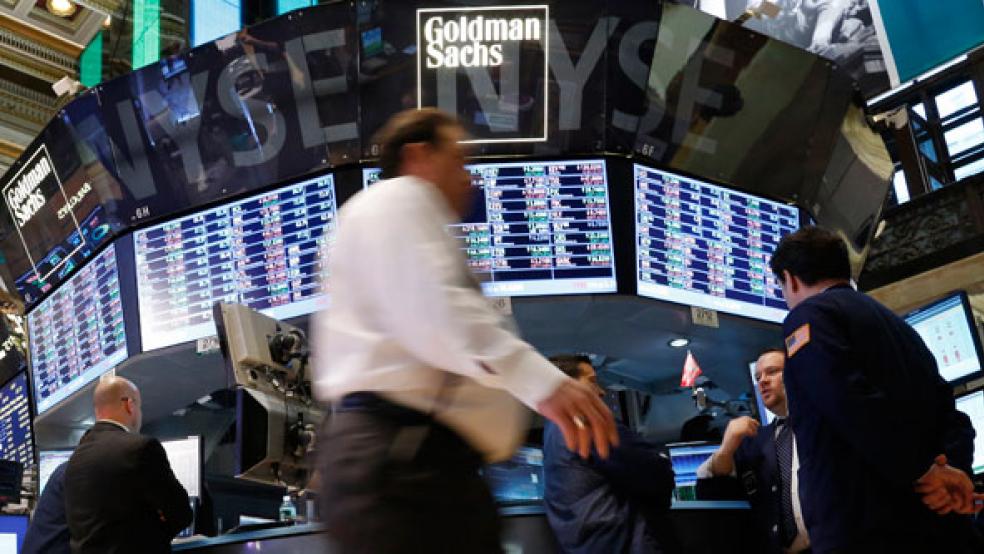As stocks sail into the holiday season at record highs, strategists are looking past any Santa rally to the volatility that could come with the new year.
In the week ahead, the focus will be very much on economic data, crammed into Tuesday and Wednesday, ahead of the Thanksgiving holiday.
Related: The 2013 Holiday Season Will Be a Tale of Two Sectors
There are durable goods, jobless claims, home prices, income and spending, and consumer confidence readings - all of which will be followed carefully for what they might say about the economic outlook and how the Fed will react to it.
"I'd go with the idea inertia may help keep the bulls floating here," said Art Cashin, director of floor operations at UBS. "[The week] should be slow. It has a historical bias to the upside, and Friday's a half day and Thursday's a holiday. It's the ultimate family holiday so a lot of people will stretch it into Wednesday."
Shoppers get an early start this year, with many chain stores - Wal-Mart, Target and Macy's - opening Thanksgiving Day, ahead of the traditional Black Friday launch for holiday retail. The National Retail Federation forecasts a 3.9 percent improvement in November and December sales over last year, and if the consumer rallies it will send a message on the economy and jobs.
Besides data, interest rates will be a focus and traders will keep their eye on the 10-year Treasury. The yield was at 2.75 percent Friday but had risen above 2.83 percent earlier in the week after the Fed's October meeting minutes signaled a tapering back of its $85 billion-a-month bond-buying program could be decided within a few months.
Related: Cautious Consumers May Make for Ho-Ho-Hum Holiday Sales
That pullback in Fed easing and the prospect that rates will rise is a factor clouding the outlook for stocks next year, though the economy is expected to continue to improve. There also continues to be the overhang from another round in the congressional budget and debt ceiling debates, starting again in January.
"I think velocity is going to turn up. When that becomes obvious next year, it will force the Fed to taper," said James Paulsen, chief investment strategist at Wells Capital Management. "I think if the Fed tapers on its own volition, I think the stock market is going to be fine. … But it's going to be a change in Fed policy due to a panic, and because the velocity has turned up and the bond market has to reprice, and it reprices toward 4 percent in the 10 year, and after a big run up, the stock market is going to be challenged."
For that reason Paulsen expects the S&P to end flat on the year in 2014 but poised to rise again in 2015. "I think we run ahead to [S&P] 2,000. Then we turn around to 1,800, and that will be our year next year," he said.
The Fed is expected to move to wind down bond buying in the next couple of months, with some strategists putting odds on December, but more on January or even March.
Related: Are We Suffering from 'Secular Stagnation'?
Jeff Kleintop, chief market strategist at LPL Financial, expects the market to make out better next year, and he said stocks can deal with rising yields as long as the move higher isn't rapid. He expects more volatility in 2014 but also sees gains of 10 to 15 percent for the stock market, with a boost from earnings growth.
"The volatility will come from growth scares," said Kleintop. He said that as the Fed tapers, investors will worry the economy may not be strong enough to withstand it. As for this year, he expects the market to continue moving higher, adding to the already 26 percent gain in the S&P 500 year to date. "We've got a few more percent to go. I don't think it's huge but I think we could get closer to 30 percent on the year. It may be with some ups and downs, but by and large, it's going to be a very low volatility climb to new highs."
Kleintop expects to see retail sales come in above forecast for the holiday season. "I think we're going to come in better than that and consumer discretionary stocks are going to lead us to the highs," he said.
Stuart Freeman, chief equity strategist at Wells Fargo Advisors, does not expect further gains this year. While he sees stocks rising next year, to between 1,850 and 1900, he does not expect much more this year. "I personally think we're a little ahead of ourselves," he said. "It's going to depend on the data we see in December, but I think the fact we've had such a good year offsets that. Net net, I think we could be not far from here in six weeks from now."
Freeman expects the market will muddle through as the economy gets better. "We think next year is going to be modest returns with more volatility," he said. The market should be helped by the fact that Fed Vice Chair Janet Yellen has made it clear the Fed will be there for the economy and keep stimulus going as long as it is needed even if it begins to taper bond buying, he added.
The Fed's message has repeatedly been that it will keep short-term rates low even as it withdraws from its quantitative easing program and that the assets on its balance sheet will continue to keep long-end rates low. "I think jobs get better," Freeman said. "I think consumer confidence lifts a little bit. More people will be touched by the growth we're getting. I think investor confidence has gotten better. We're not looking at euphoric behavior by any means. It doesn't look toppy for that reason."
Stocks closed out the past week at new highs for the Dow and S&P 500. The Dow closed above 16,000 for the first time Thursday, and the S&P 500 finished above 1,800 for the first time Friday. The Nasdaq is closing in on a big round number of its own - 4,000, a level it hasn't reached in 13 years. The Dow finished up 0.7 percent in the past week at 16,064, its seventh week of gains. The S&P ended the week up 0.4 percent at its highs - 1,804, a positive sign for the coming week.
Gold was one market to watch in the past week; it reacted violently to the idea of the Fed tapering its bond buying. Gold settled Friday at $1,244.10, after losing 3.7 percent in its worst weekly decline in more than two months. Strategists say it is technically weak and could fall further.
Oil ended higher on the week, with West Texas Intermediate futures up 1.1 percent to $94.84. Brent was also higher on the week, up 2.4 percent to $111.05. Traders are watching talks in Geneva on Iran's nuclear program, said to be making progress. A resolution of negotiations between Iran and six nations could lead to a deal that would return Iranian crude to the market, bearish for oil prices.
WHAT TO WATCH:
Monday
Earnings: Seadrill, Nuance Comm, Palo Alto Networks, 21Vianet
8:58 a.m. Markit services PMI
10:00 a.m. Pending home sales
Tuesday
Earnings: Hewlett-Packard, Tiffany, Chico's FAS, Signet Jewelers, Eaton Vance, Hormel, Tivo, Barnes and Noble, Analog Devices
9:00 a.m. S&P/Case-Shiller home prices
9:00 a.m. FHFA home prices
10:00 a.m. Consumer confidence
Wednesday
Earnings: Renren
8:30 a.m. Initial claims
8:30 a.m. Durable goods
8:30 a.m. Personal income
9:45 a.m. Chicago PMI
9:55 a.m. Consumer sentiment
10:00 a.m. New home sales
Thursday
Thanksgiving Day
U.S. markets closed
Friday
Black Friday
This article originally appeared in CNBC.
Read more at CNBC:
U.S. investors uncover a new market - and it's popping
Bubble? What bubble? It's hard to find one yet
Boom times? Job openings, hiring rise


